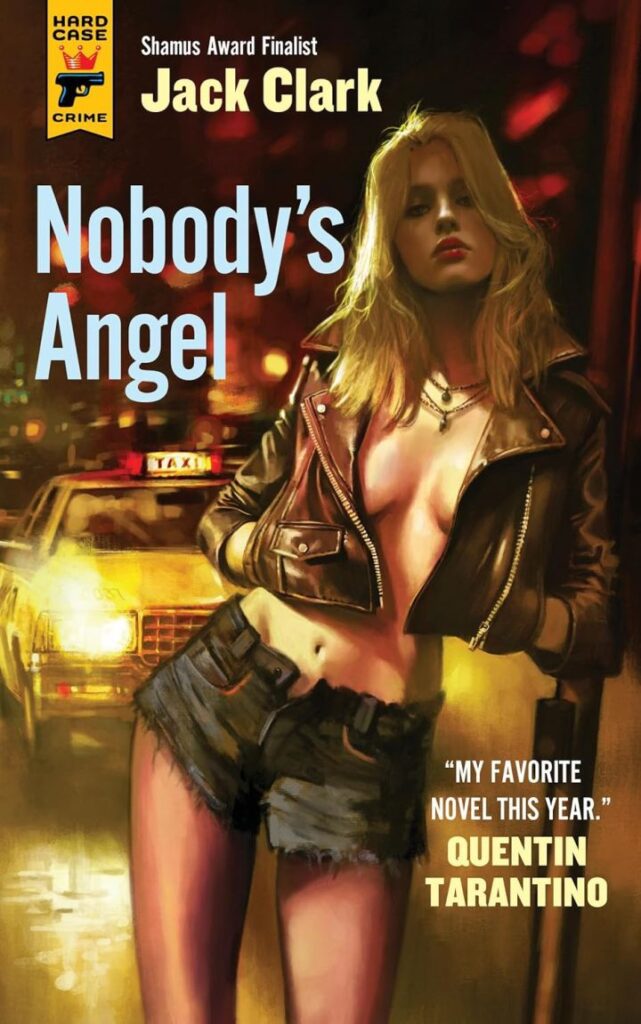
When you’re a movie fan and reading a taxi driver story, it’s easy to have a certain film foremost in your mind. Taxi Driver is one of the greatest films ever made. But it uses taxi driving as a metaphor. A disconsolate, ultimately psychopathic man drives a taxi to find some kind of link to humanity. He makes all the wrong connections.
Buy Nobody’s Angel by Jack ClarkNobody’s Angel is not that. Jack Clark was an actual taxi driver, and here writes about the experience of being a hack in Chicago in the early ’90s. It’s not a metaphor, more of a fictional diary. It’s a novel about a lifestyle that is at once connected and completely separated from the world around it.
Eddie Miles is a nighttime driver. He works for a company and has a partner driving the cab during the day. He cruises the streets, looking for fares, and often ends up in a 24-hour coffee joint where the other cabbies hang out, complaining about how bad business is.
There are all kinds of little tensions running through the book. The cabbies at the diner are mostly white, and most new cabbies around town are immigrants, mostly Indians. The other cabbies don’t dislike them, but there’s a clear divide. No one, not even the black cab drivers, want to take fares “South”, to the black neighborhoods. Eddie feels the same, though sometimes he does it anyway. His best friend is Lenny, who just won a license lottery to run his own cab service. Lenny doesn’t go “South.”
So that’s one of the big mysteries when Lenny is found dead in his cab. He was found at Cabrini-Green, an infamous housing project. He’s the latest in a string of cabby murders. The same night Lenny was killed, Eddie has his own run in with violence. He finds a young, mutilated prostitute, barely alive. Eddie thinks she was dumped out of a van. He gets the cops and an ambulance, and when the girl looks at him, she asks, “Are you an angel?”
Well, like the title of the book says, Eddie’s nobody’s angel, and this isn’t a detective novel. Eddie’s a cabby, and while the murders function as a narrative drive, the book is really about the life. Eddie takes fares and sees the whole human picture in his city. He gets scammers. He gets drunks. Eddie’s a little surly, even with the friendlier fares. Every fare is a little sketch of life. Most of them are a little sad.
When Eddie does try to do a little detective work, he basically screws it up. He gets some wrong ideas about Lenny’s last night and ends up fingering the wrong guy. In both cases. He does better when he’s driving his car, not playing cop.
Jack Clark, the author, was a Chicago cab driver and before he got a publishing deal would sell copies of Nobody’s Angel out of his cab. The writing is spare, direct, and clean. I would describe it as almost pulpy, but pulp writing often has a forced machismo. Eddie isn’t a pretend tough guy, and he doesn’t speak in pretend tough guy tones.
Nobody’s Angel tells a pretty grim tale, but it’s not lurid nor leering. It’s a clear-eyed view of a city with big problems, from the perspective of a man who’s out in it all night long. It’s a tidy murder mystery, not told from the perspective of the detective. While not a big story with a page-turning plot, Nobody’s Angel is a thoroughly engaging look into a dark world.
Nobody’s Angel was published by Hard Case Crime.